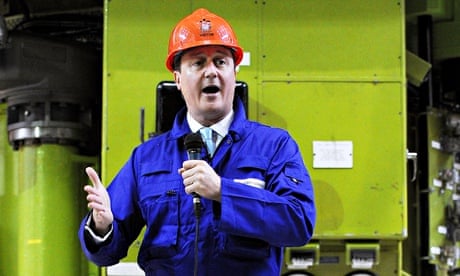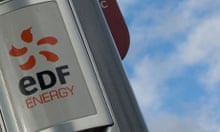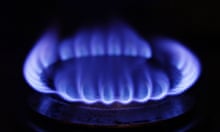EDF, which operates most of Britain's nuclear power stations, could be in line for an £800m windfall via a loophole in a government subsidy scheme aimed at keeping the lights on at times of peak demand.
Ed Davey, the energy and climate change secretary, last week outlined his plan to pay power plants to be on standby from 2018 in an effort to deal with peak demand and the intermittency of wind power.
Most industry experts assumed that the "capacity market" scheme – the cost of which will be passed to the consumer – was designed to ensure that the many gas-fired power stations threatened with closure would be kept open.
But the Department of Energy and Climate Change (Decc) now admits the scheme will be open to all forms of generation including nuclear, which has low operating costs and therefore could undercut its competitors in the auction to be run by the National Grid.
The market is meant to start with that auction later this year although the ratings agency Moody's has warned it may be delayed if it is found to breach European commission rules on state aid.
All but one of the UK's nuclear power plants are owned by the largely French state-owned EDF, whose UK atomic portfolio includes seven ageing plants due to be closed by 2024.
Cornwall Energy, a power industry consultant, estimates that successful bids by EDF using all seven of its existing plants could be worth £223m in the 2018-19 financial year and £818m in total by 2023.
Lawson Steele, a utility analyst with the investment bank Berenberg, described the potential for nuclear to take advantage of the scheme as a "slight anomaly". But an energy trader, who asked not to be named, said: "This is a massive windfall for EDF. The cost to generate nuclear energy is low, so these plants are profitable, whereas gas-fired generation is marginal."
EDF was unwilling to say whether it would participate in the capacity auctions, which will be run in December, with the power having to be made available from 2018. But a spokesman said: "We understand that the capacity auction will be technology neutral and theoretically rules in nuclear power plants.
"We won't be giving any steer on what power plants we will be entering into the capacity auction until the pre-qualification period in August."
If it is built, EDF's Hinkley Point C power plant will not be eligible for the capacity market as it will be subject to another, more generous subsidy scheme known as "contracts for difference" (CfD).
Tory MP Tim Yeo, chairman of the energy and climate change select committee, was told about the decision to include nuclear power by the Guardian. He said he was surprised at the move. "The capacity market is designed to provide flexibility and this is a rather perverse consequence of that. Decc seem to have rather a lot on their plate and they're quite an under-resourced team."
The department said it was too early to predict who would win what in the future bidding. "It is important to note that the capacity contracted in the capacity market will be determined by a competitive auction so it is not possible to say with certainty what proportions of each technologies will be procured."
Tom Greatrex, the shadow energy minister, said the value of letting existing nuclear capacity take part in the auctions seemed dubious.
"Nuclear is a significant baseload power source, but is not flexible enough to be part of an efficient capacity market. There are, therefore, serious questions as to why Decc ministers have given nuclear power stations the green light to bid for capacity payments when they won't be able to add flexible capacity to the mix."
Fellow Labour MP Alan Whitehead, who is a member of the energy and climate change select committee, wrote in a blog that the capacity market system was far too expensive and was five times more than a previous government plan to set up an emergency "strategic reserve".
The capacity scheme is also too extensive, he wrote: "It strikes me as rather like announcing that you are going to concrete over the Somerset levels to a height of six feet and then proclaim that a flood prevention strategy is now fully in place."
In a report on the UK energy sector, Moody's predicted the European commission may determine that the design of the capacity payments scheme may have to be changed, triggering delays. Decc said that it remained confident that this would not happen.







Comments (…)
Sign in or create your Guardian account to join the discussion